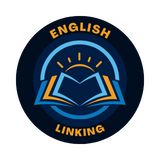Did you know that effective communication can enhance your professional relationships and open doors for new opportunities?
One area where many people struggle is in transitioning from casual to formal language. This shift is especially important in business and academic settings.
One phrase that often comes up is “I was wondering.” While it may be acceptable in casual conversation, you might want to choose more formal synonyms when writing emails, reports, or during meetings.
This blog post will help you explore formal synonyms for I was wondering and how they can elevate your communication skills.
Casual vs. Formal Language
Before diving into the formal synonyms for I was wondering, let’s understand the difference between casual and formal language. Casual language is relaxed and friendly, often incorporating slang or colloquial expressions.
On the other hand, formal language is more structured and polished. You can use it in professional emails, academic papers, or formal meetings.
Knowing when to switch from casual to formal language is crucial. For example, if you’re discussing a project update with your team, a casual tone might work well. However, if you are emailing a client or presenting to a board, a more formal approach is necessary.
Why Choose Formal Language?
Using formal language has several benefits. Let’s look at some;
I. When you use appropriate language, it shows that you respect your audience and take the matter seriously.
II. Formal language helps avoid misunderstandings. It provides clarity, making it easier for the recipient to grasp your point.
III. Lastly, it can enhance your credibility. People are more likely to take you seriously if you communicate clearly and professionally.
Overview of the 7 Formal Synonyms for “I Was Wondering”
Now that we understand the importance of using formal language, let’s look into the seven formal synonyms for “I was wondering”.
1. “I Would Like to Inquire About…”
This phrase is a straightforward and polite way to express your interest in obtaining information. It sets a formal tone and makes it clear that you are seeking specific answers.
Example: “I would like to inquire about the status of my application for the marketing position.”
This indicates that you are serious about your inquiry, making it appropriate for formal emails or meetings.

2. “I Am Interested in Knowing…”
The synonym conveys genuine interest in gaining information. It is slightly less formal than the first option but still suitable for professional communication.
Example: “I am interested in knowing the details of the project timeline.”
Using this phrase shows that you are engaged and invested in the conversation, which can foster a better relationship with your colleagues or clients.
3. “I Would Appreciate Your Insights On…”
When you want to seek advice or input, this phrase is very effective. It shows that you respect the other person’s knowledge and expertise.
For instance: “I would appreciate your insights on the recent market trends affecting our strategy.”
This approach not only asks for information but also acknowledges the value of the other person’s opinion, enhancing collaboration.
4. “Could You Please Provide Information Regarding…?”
This phrase is a polite request for specific information. It is particularly useful in emails when you need clarification on a topic.
Example: “Could you please provide information regarding the upcoming meeting schedule?”
Using this phrase clearly states your request, making it easier for the recipient to respond effectively.
5. “I Seek Clarification On…”
The expression is ideal when you need to understand something better. It indicates that you are looking for more detailed information.
Example: “I seek clarification on the guidelines for submitting proposals.”
This phrase signals that you are taking the communication seriously and are invested in ensuring you have all the necessary details.
6. “Would You Mind Sharing…?”
This is a courteous way to ask for information. It is friendly yet professional, making it suitable for various contexts.
Example: “Would you mind sharing your thoughts on the new policy changes?”
The phrase softens the request and shows respect for the other person’s time and expertise.

7. “I Am Eager to Learn More About…”
When you want to express enthusiasm about a topic, this phrase works well. It conveys a positive attitude toward gaining knowledge.
Example: “I am eager to learn more about the new software implementation.”
This expression shows your proactive approach to learning and growth, which can impress your colleagues or clients.
How To Use These Formal Synonyms Effectively
Now that you know the seven formal synonyms for “I was wondering,” let’s discuss how to use them effectively.
Choose the Right Context
Before using any formal synonym, assess the context. Are you emailing a colleague, addressing a client, or presenting to a board? Understanding your audience and the situation will help you select the most appropriate synonym.
Practice Makes Perfect
Like any skill, mastering formal language takes practice. Try incorporating these phrases into your daily communication. The more you use them, the more natural they will feel.
Adapt to Your Audience
Consider the relationship you have with the person you are communicating with. If you have a casual rapport, you might not need to be overly formal. However, if you are reaching out to someone you don’t know well or in a formal setting, err on the side of formality.
The Impact Of Language On Communication
First Impressions
You only get one chance to make a first impression. The language you use plays a significant role in how others perceive you.
Using formal language can create a positive impression, indicating that you are competent and thoughtful. On the contrary, casual language might come off as unprofessional, particularly in business settings.
Clarity and Respect
Formal language also conveys clarity and respect. When you use precise terms and structured sentences, you communicate your ideas more effectively.
This clarity is especially important in complex discussions where misunderstandings can lead to significant issues.
Additionally, formal language shows that you respect the recipient’s time and attention, and value the communication process, which can foster better relationships.

Conclusion
Knowing formal synonyms for I was wondering can significantly enhance your communication skills. Using the right language not only conveys professionalism but also builds trust and respect with your audience.
As you practice these phrases, you will notice an improvement in your communication style and effectiveness. So go ahead, try out these formal synonyms in your next email or meeting, and watch how you make an impact on your listeners.
Help others refine their language skills and enhance their professional interactions by sharing on your social media handles.







